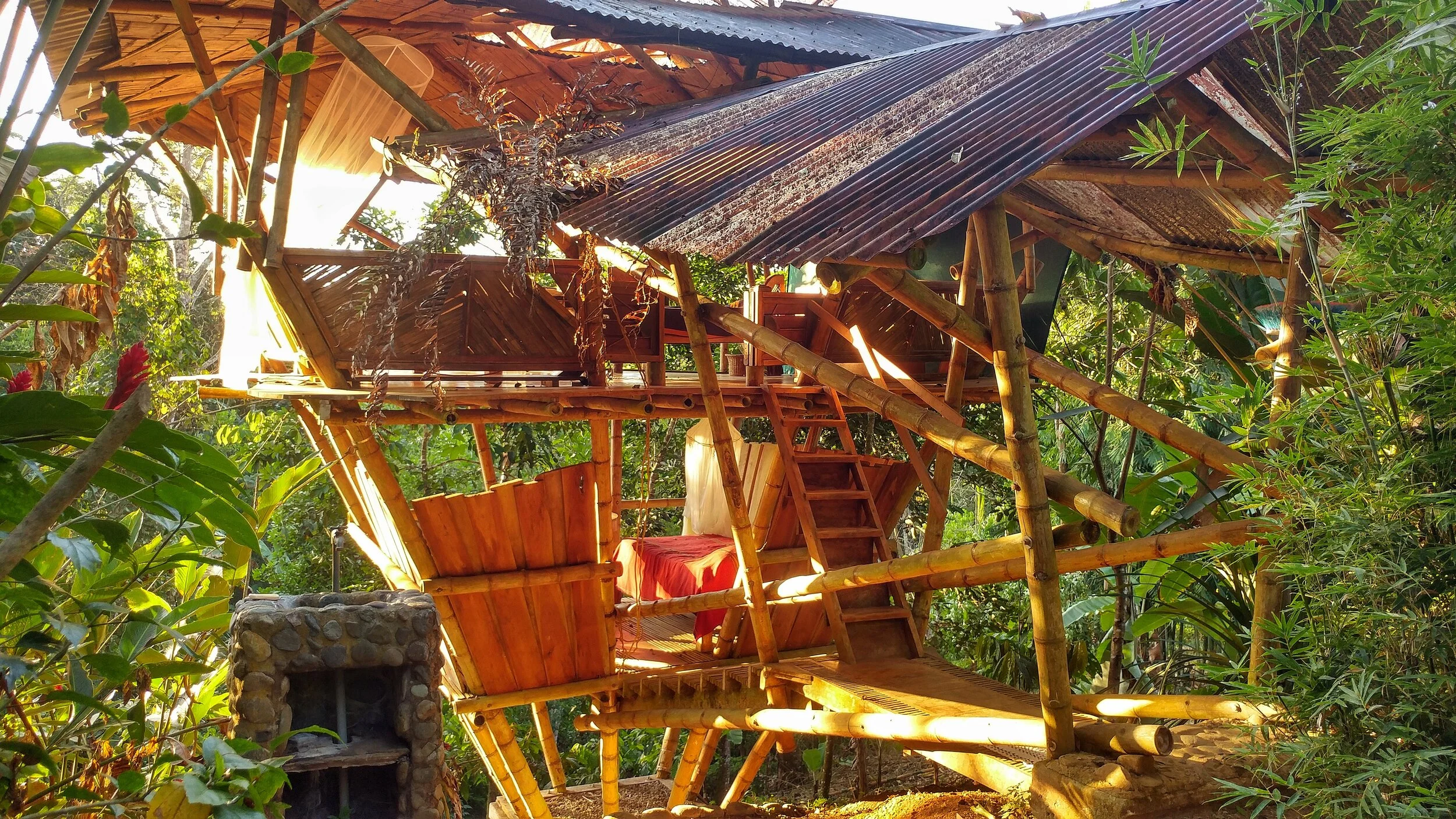Living Without Walls - A Year of Jungle Community Living
By 2021 apprentice Hanita Knudson
Many of our buildings have fewer and unique “walls”
Being an Arizona native, much of my life is defined by walls. As a border state our boundaries are clearly defined by the massive border wall that separates us from our neighbors.
I also come from the opposite landscape of the tropical jungles of Costa Rica- at home we rarely receive rain and have extreme temperature shifts in the summer. Walls can provide us with essential insulation from the elements, and also create the structure for me to decorate and form a sense of comfort.
However, my relationship with walls is complex. As someone who has lived, studied, and worked in border communities for most of my adult life, it is an overarching theme I think of often. Before I arrived at Rancho, I was working with children mostly from Central and South America coming to the states to reunify with their families. Every day was a very present reminder that this physical barrier has created a deep division in how we perceive and interact with each other. For years I have seen how one wall can have continual detrimental effects both on our natural landscapes and our relationships between countries.
One of the first things I noticed and continue to observe at the Ranch is the absence of walls. Here, we live in open air structures and are constantly connected to each other and nature. All of our spaces meld together, which means we share just about everything. This has made my understanding of walls, or lack thereof, even more complex. Nature is always around us and it feels as if we are naturalized citizens of the jungle rather than the owners of the land. We are in constant shared space with the jungles plants and creatures. From ants building nests in my bed, to spiders laying eggs on my mosquito net, to toads hopping about the floor of the main house, to boa constrictors slithering around the ceiling of the food prep kitchen, I could go on and on about my daily interactions with my animal land-mates. To say it has been easy would be a far stretch from the truth. However, I have also seen the immense benefits, both personally and in community, of living without walls.
An example of our natural building with earthen walls
Walls obviously serve various functions, and we spend a decent amount of time at the Ranch building earthen walls for safety and shelter. But often, in other contexts, their function of separation is more harmful than helpful. It is easy to disconnect yourself from something if you never have direct interactions with it. We often consume resources without a second thought as how those resources made it to us or how the Earth was affected to obtain them. Now that I can see the farm where much of my food is grown, and hear my neighbors who provide what we cannot produce ourselves, I am continually reminded of every life that provides for my own. I am a witness to all the pollinators, plants, and people who I depend on, and as a result and I continue to learn to care on a deeper level about their wellbeing.
Community spaces being shared
It is also easy to make assumptions and judge others when you stay separated from them. When you share a bedroom, bathroom, kitchen, and all other living spaces with a group of people, you end up learning quite a bit about them. The other apprentices and I talk and interact just about all the time- whether doing dishes, building adobe bricks, or even brushing our teeth. During these times, we share almost too many details about our day to day lives, but in the end, understand each other so much more deeply than if we had our own spaces. This makes it much easier for us to support one another or just let the little annoyances go.
In permaculture, one of the most essential concepts is “edges”. While dominant Western society tends to value centralization, efficiency, and consistency, permaculture places immense value on the interaction between people, places, and biomas. Here, at the edge of the jungle, Mother Nature is my consistent teacher and friend. I am constantly living at the edges - talking, learning, growing, and adapting with all the other beings around me. Without separation, I can observe how nature functions and deepen my understanding on a daily basis. Without borders, I deepen my relationships with all my neighbors, from cicadas who sing into the night to the many other jungle sounds. Though it’s not always easy, we form a more interconnected and resilient community as a result.
Our earthen meeting structure where we hold classes, community meetings, talent shows and more





